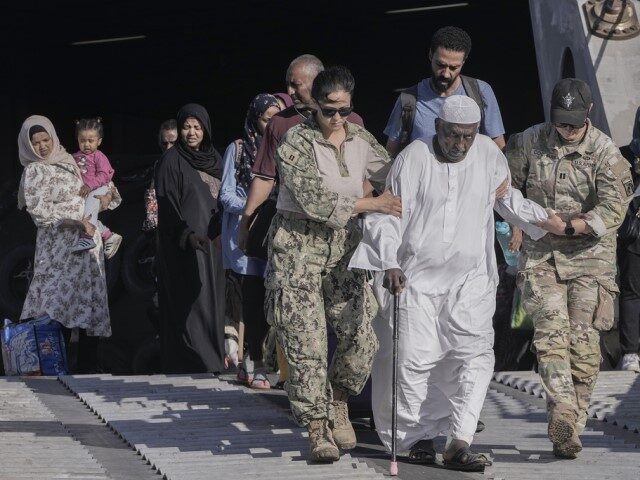The U.N. International Organization for Migration (IOM) warned on Tuesday that over 700,000 people in Sudan have been driven from their homes by fighting between two junta factions.
The new figure was striking because only a week previously, IOM estimated less than half as many displaced persons from the conflict.
IOM noted that “an estimated 3.7 million people were internally displaced in Sudan” even before the civil war broke out.
“The IOM has stocks of non-food items in six warehouses around the country. But to date, we have been unable to deliver to those in need,” the U.N. refugee organization said.
“The fighting must end and humanitarians must be allowed to resume their work, providing assistance to those most in need before the situation spirals further out of control,” IOM urged.
Voice of America News (VOA) suggested the dramatic upward revision might have been influenced by more accurate information collected during a relative lull in the fighting – a “ceasefire” extended several times, but never without the sounds of gunfire and bombs being heard across the capital city of Khartoum.
IOM’s new figures, which included an estimate of 100,000 Sudanese fleeing the country entirely, were released one day after representatives of the junta factions met for talks in Saudi Arabia. A major topic of discussion was the creation of humanitarian corridors so food and medicine could reach suffering Sudanese civilians.
The Saudis attempted to spur negotiations by offering $100 million in aid, but Saudi officials described the three-day negotiation as largely fruitless.
“A permanent cease-fire isn’t on the table. Every side believes it is capable of winning the battle,” a Saudi official glumly told Agence France-Presse (AFP) on Monday.
This assessment was consistent with public remarks by the faction chiefs — Sudanese army commander Gen. Abdel Fattah al-Burhan and paramilitary Rapid Support Forces leader Mohamed Hamdan Daglo — each of whom intends to fight until the other is dead.
The Saudi Foreign Ministry officially released a more optimistic statement that the factions were at least willing to discuss “the security measures they should take in order to facilitate the delivery of urgent humanitarian aid and the restoration of essential services.”
On the other hand, aides to U.N. humanitarian chief Martin Griffiths said he flew to Jeddah hoping to meet with the Sudanese representatives and press the case for urgent civilian relief, but he was not given permission to join the negotiations.
The BBC found “fierce battles” raging in the area around the presidential palace in Khartoum on Monday, including reports of a Sudanese military air strike that struck an Ottoman Empire-era palace that now serves as a museum.
“Other residents said that military fighter jets were flying all over south Khartoum and heavy fighting was taking place in the middle-class neighborhood al-Sahafa, not too far from the international airport, which is shut,” the BBC reported.
IOM spokesman Paul Dillon warned on Monday that many of Sudan’s displaced civilians are “sheltering with relatives, while others are gathering in schools, mosques, and public buildings,” which could make them highly vulnerable to airstrikes and artillery.
“The ATMs aren’t working and the banking system is not functioning. Fuel is difficult to come by and expensive,” Dillon reported.
“It is extremely concerning that assistance that is so desperately needed — especially for the newly displaced — cannot be provided. Innocent civilians, including women and children, will only continue to suffer,” said the U.N. Human Rights Commission (UNHCR).

COMMENTS
Please let us know if you're having issues with commenting.